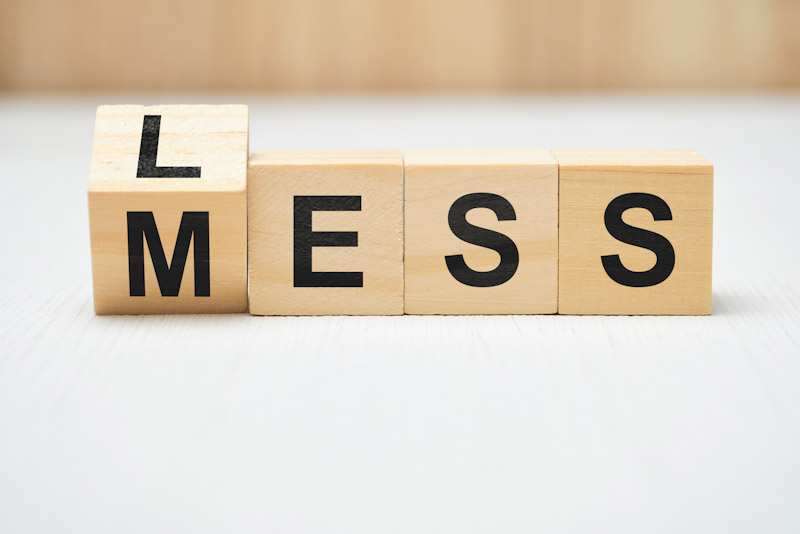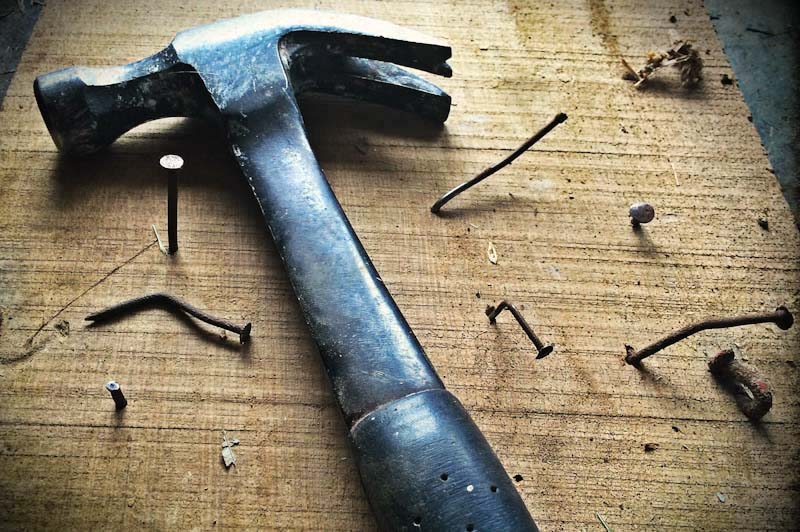Easy Does It: Tips To Keep It Simple in Early Recovery
It's harder to make recovery work if you overwork yourself. Here's how to keep your focus on what matters now

If you’re new to recovery groups, you’ll find out one thing quickly: There are many mantras and maxims, especially in 12-step programs! When you’ve always been a do-things-my-way person, it can be a little jarring. But in early recovery, when everything feels upside-down, having some snappy, easy-to-remember guidelines can help. “Take what you need, and leave the rest” (as they say).
There’s one such phrase in particular that can really light the way in these early days. Right now, it’s natural to feel overwhelmed by the whirlwind of addiction treatment programs, changes to your lifestyle and challenges you may face with relationships, career, finances and the law. The imperative that’s, well, imperative here is, “Easy does it.”
Taking life at a steady pace, maintaining sobriety “one day at a time,” keeping things simple and focusing on your recovery first — these are crucial for success.
First, the Hard Part: Reaching Out
One of the hardest parts of recovery happens before you actually begin recovery at all. It’s the part where, fighting addiction, you reach out for help. Acknowledging you have a problem is hard. Facing the uncertainties of a different kind of life is hard. Asking for help is hard.
But recovery almost always requires help, because the grip of addiction is so strong. Family, friends, peers in recovery communities and medical professionals are all there to help you get started. Many will be overjoyed to do it! Still, against the stubbornness of addiction, accepting help is tough, and you deserve high praise for taking it.
Once you’ve made peace with these two A’s — acknowledgment and acceptance — it’s time for the third one: action.
Keeping It Simple in Early Recovery
The action part of early recovery is where the concept of keeping it simple is key. The first and foremost way to keep it simple is listening to the professionals and peers with whom you’ll begin your recovery journey, rather than trying to do too much on your own too soon.
The old, refreshingly rude 12-step saying for that would be, “Taking the cotton out of your ears and putting it in your mouth.” Probably goes against the grain of your old attitudes, but it can’t hurt to take some cues from people who know your battle, right?
Living in the Moment, One Day at a Time
Another way to keep it simple: Focus on what’s right in front of you rather than what may be coming down the recovery road. Everyone’s heard about taking it “one day at a time.” This applies to abstinence from substances, yes, but it also means living in the moment and doing “the next right thing” for your unique recovery.
Many people in early recovery want to rush things. This is both natural and understandable. If you’ve damaged relationships, imperiled a job or even just put your goals on hold for months (or years) in active addiction, the impulse is to fix it all, stat. “Cleaning up the wreckage of our past,” some folks call this.

You have time for all that. That immediate “pink cloud” feeling of empowerment that you can do anything in early recovery sometimes leads to frustration. Get your basics in order to take care of yourself first: Eat right, stay active, sleep well, keep up your connections to people you trust. Just as you would recover from any illness.
There are a few other small things you can do to keep it simple: Eat something sweet when you feel a craving. Ring up a friend in recovery when you’re confused, distressed or ready to call the whole thing off. If things feel overwhelming, pause to figure out if you’re hungry, angry, lonely or tired (aka “H.A.L.T.”).
And while you work through this, remember that other people in your life may need time to recover from your behaviors as well. As you take the time to take care of yourself, you’ll allow other people the space they need. When the time is right, you’ll be prepared to address and correct any issues that linger from your active addiction.
‘It Works if You Work It’
What we’ve just described as “simple” is still active stuff! You’re not just standing on the sidelines of your own life. It’s important to recognize that merely abstaining from substances won’t help you adjust to sobriety and create a happier existence. This is where “doing the work” comes in.
“Easy does it,” yes, but you have to “do it.” Depending on your needs, this means participating in therapy, attending recovery meetings, working with other people in recovery and creating a recovery plan that is going to outlast your time in treatment and your early sobriety.
Dispel Discouragement and ‘Keep Coming Back’
A critical part of any effective early recovery plan is putting a system in place to avoid or navigate a return to use (commonly called a relapse), and a big part of that is internalizing the idea of “keep coming back.”
A return to use is incredibly common in early recovery — but incredibly discouraging nonetheless. Yet you shouldn’t consider it the end of the recovery journey. Think of it this way: What’s important is not how we fall. It is how we get back up and move forward.
Recovery is all about forward momentum. This is as true in long-term recovery as it is in early recovery.
“Progress, not perfection” is the phrase we’ll leave you with. You’ll have setbacks large and small, as everyone does in life. Keep reaching out for help, keep doing the work, keep getting up when you’re down and keep it simple when you need to. That’s progress. And you can keep achieving that too.
More Help & Information
Does the 'Pink Cloud' of New Sobriety Help or Hurt? It's Complicated
The euphoria of early recovery may be fleeting, but long-lasting balance is the goal. Here's how to keep your head up through the process and handle reality with confidence.
Sobriety vs. Recovery: What's the Difference?
Are the concepts themselves up for debate? Do they require certain treatments, or abstinence from everything? It's complicated! And new ways of thinking are changing the conversation.
Now Elite NFL Players, They First Tackled Addiction | News Roundup
All Sober compiles the best of the latest headlines. Here's your addiction and recovery news for the week of Feb. 19, 2024!
Help Them Help You: Explaining Your Mental Health to Your Family
Your mental health can affect — and be affected by — your loved ones. Here's how to discuss it with them so everyone can heal.
Dry January (and Beyond): The Possibilities Are Endless
There's never been a better time to go sober. Whether you're trying it out this month or already living the life, join us for some tips, ideas, inspiration — and maybe even new friends.
Sober Holiday Tips: Meeting 'Share-a-Thons'
Need to get out of the house for a bit and see some friendly sober faces? Recovery support group meeting marathons run 24/7 from Christmas Eve through New Year's Day.
What Happens After an Intervention?
Your loved one agreed to get treatment for addiction during their intervention — or not. Here's what you need to know about what comes next.
We're in This Together: Building a Healthy Sober Support Network
You are the captain of your recovery, but you don't have to do it alone. A sober support network will lift you up in tough times and celebrate your triumphs.











